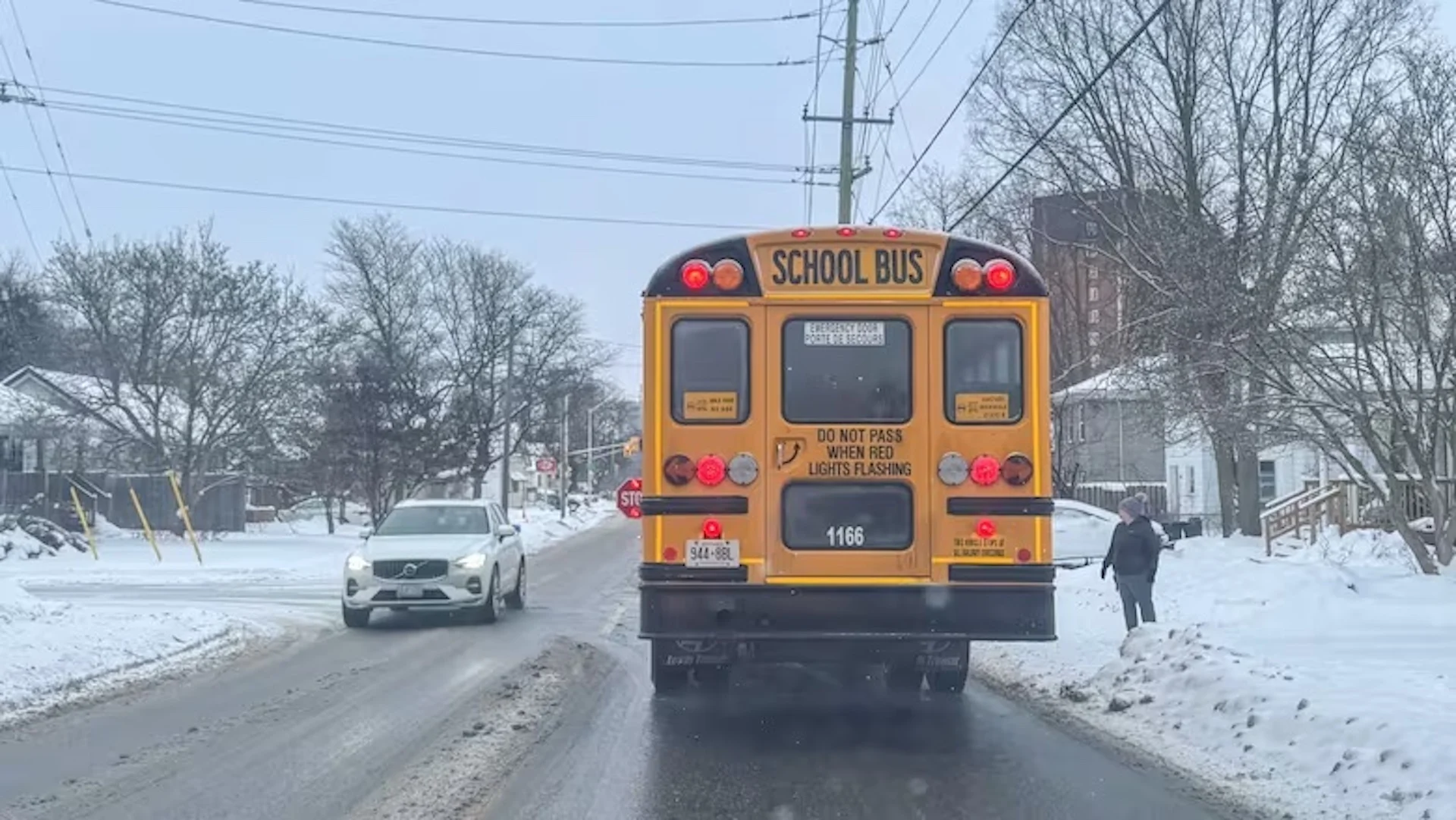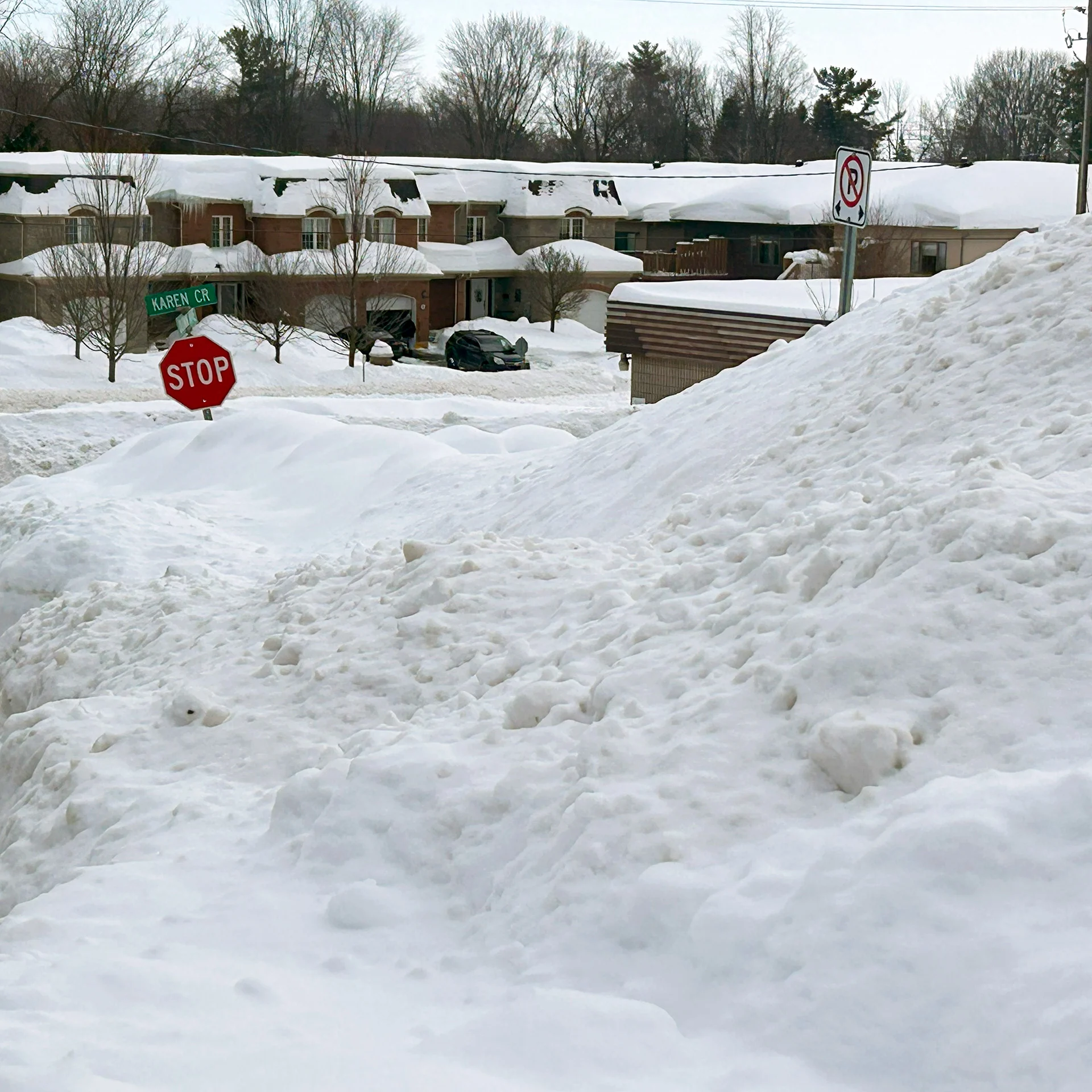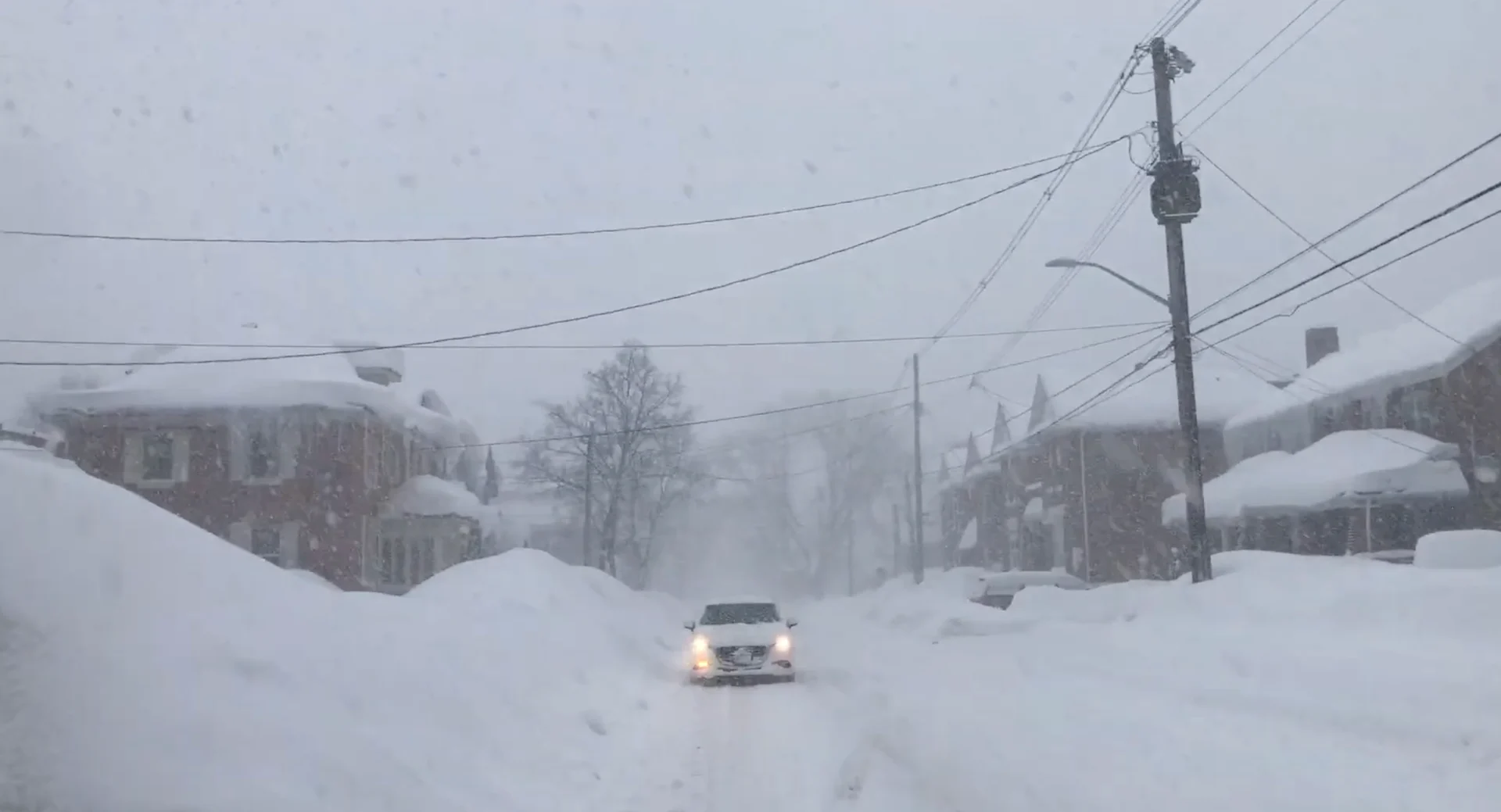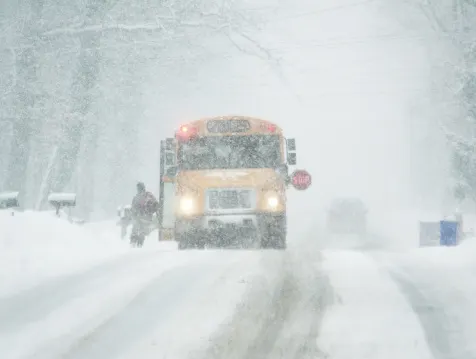
Some Ontario students missed nearly 1 month of school due to snow days in winter
Some Ontario children missed nearly a month of school this winter because of snow days — an impact they're likely now feeling, educators say, as teachers rush to get through the remaining curriculum before the academic year ends.
Winter conditions kept students home in parts of southwestern and central Ontario for up to 27 days over the past year.
SEE ALSO: As tall as a giraffe: Snow total nears record levels in Canadian city
In some cases, that was because the school itself closed, while in others, it was because school buses were cancelled. Provincewide, upwards of 830,000 children rely on these buses to get to and from their schools, according to the non-profit School Bus Ontario.
"It certainly presents challenges to learning," said Christopher Walkling, a principal with the Near North District School Board.
Walkling told CBC Toronto the number of snow days this year was higher than in recent years. However, it was far from record-breaking.

(Getty Images)
The Near North board is one of four that relies on buses provided by Nipissing Parry Sound Student Transportation Services (NPSSTS), which shuttles children to school in Parry Sound, West Nipissing, North Bay, East Ferris and Mattawa.
Bus cancellations due to snow were location-dependent and ranged between 14 and 26 days during the 2024-2025 academic year, a spokesperson told CBC Toronto. That's not quite as high as the 2021-2022 academic year, which saw cancellations ranging between 29 and 43 days.
Impact on students unclear
Record-breaking or not, those Ontario figures are "extraordinarily high," said Joshua Goodman, an associate professor at Boston University who studied the impact of snow days on student success in Massachusetts.
Goodman used data on school performance and closures in about half of Massachusetts public schools from 2003 to 2010.
His research found that snow days where schools completely close in Massachusetts had little impact on student learning. Goodman did find indications that individual absences when schools remained open during bad weather were related to lower performance, particularly in math.

Orillia, Ont., snowbank in winter 2024-25. (Nathan Howes/The Weather Network)
"A full blown closure for a day actually is a little bit easier to deal with because everyone is on the same page the day you come back," he said.
But with Massachusetts only seeing roughly one to five snow days over the course of the study, his findings may not apply to the large number of snow days Ontario students faced.
"There's almost no world in which we could ever have that level of disruption," Goodman said.
Teachers faced with 'difficult decisions'
Mike Foulds, president of the Ontario Teachers' Federation, says he's seen it firsthand.
The Owen Sound high school where Foulds normally teaches social sciences at the Bluewater District School Board had 27 snow days this year — the highest number of snow days the school has seen in the last decade, according to a tracking dashboard his colleague created.

Owen Sound, Ont., snowfall in February 2025. (April Walker/The Weather Network)
It's one of several schools in Grey and Bruce counties with that many snow days, according to the school board.
Meanwhile, Foulds said, most teachers account for maybe 10 to 15 snow days.
"Math and science, those teachers are going to be struggling to make sure concepts are covered. Their curriculums are fairly packed and they build upon each other," he said.
"You see a lot more difficult decisions happening in those departments."
That's in addition to the disruption during the snow days themselves. At Owen Sound District Secondary School, Foulds said exams were cancelled as a result of five snow days in a row — leaving students to choose between a makeup test or finishing with the grade they already had.
Problem — and solutions — hard to quantify
The vast majority of snow days are caused by individual bus routes being cancelled, with full school closures being more rare. As the number of those snow days stacked up in different regions, it's hard to say exactly how many students have been impacted provincewide.
In a statement, a spokesperson for the minister of education said teachers and principals are responsible for making sure students stay on track.

(Getty Images)
"With improvements in remote learning, some boards are encouraged to pivot to remote learning during inclement weather. All boards are required to communicate their policies with parents and students as soon as they can to minimize disruption to learning," Emma Testani said.
When it comes to making the most of snow days, different schools and school boards take different approaches.
Bluewater District School Board told CBC Toronto its high school classes shift to online learning when buses are cancelled but teachers use the time to review concepts they already taught. The board also aims to keep elementary schools open while opting not to teach new material there either.
Meanwhile at Near North District School Board, Walkings says each school has its own unique approach since virtual learning isn't always possible, particularly in more remote communities without high-speed internet.
"It's an ongoing concern," Walking said. "Certainly, it becomes a conversation around equity of access."
WATCH: This small Canadian city is having one of its snowiest winters on record
Thumbnail courtesy of Travis Dolynny/CBC.
The story was originally written by Naama Weingarten and published for CBC News.